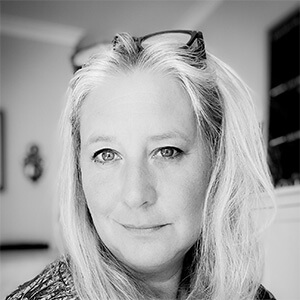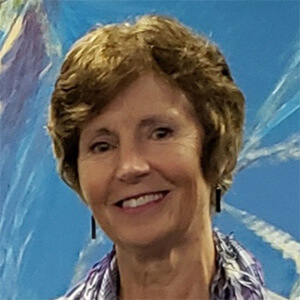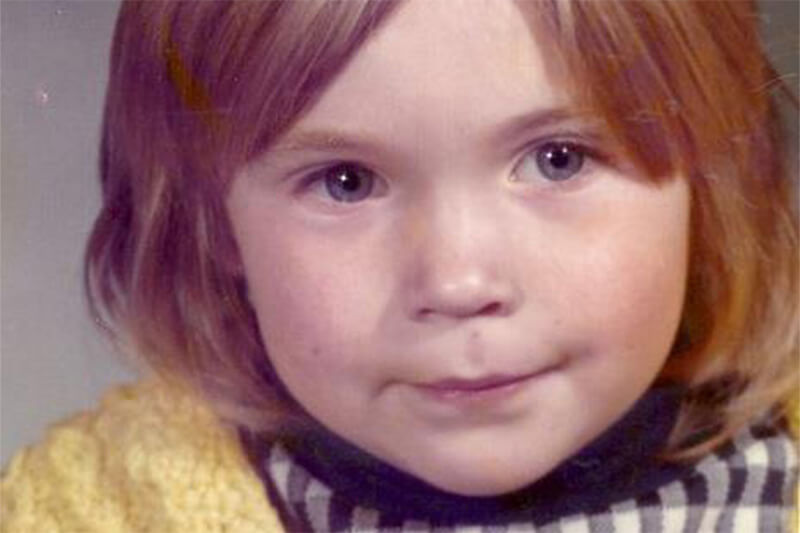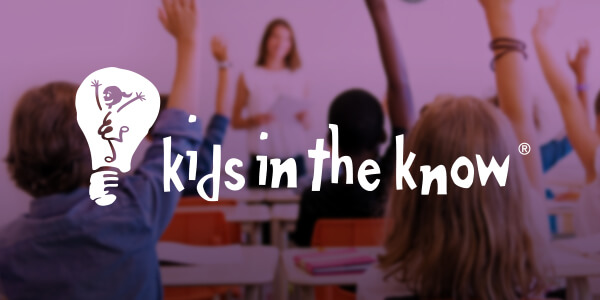It’s Simple Really…
Our Goal
The implementation of a province-wide safety education program for school-age children in Newfoundland and Labrador.
Children are at Increased Risk Every Day!
Statistics
%
Increase in Overall Online Violence Against Children over last year
%
Increase in Online Luring in 5 years
%
Increase in Sextortion Incidents in 6 months
Who We Are
About Us

Bev Moore Davis
Survivor - Advocate

Joe Boland
Retired RNC Chief of Police

Malin Enstrom
Executive Director, Iris Kirby House

Dr. Sandra Luscombe
Developmental Pediatrician

Tom Davis
Community Advocate

Connie Pike
Community Anti-Violence Advocate
The true character of a society is revealed in how it treats its children
Nelson Mandela (Activist)
School was my safe haven and the only place I felt safe
The Challenge
Many years have passed since I was that five, ten, and 15-year-old child sitting in a classroom dreading the sound of the day’s final school bell, indicating it was time to go home. I disliked weekends and feared Christmas, Easter, and summer holidays. School was my “safe haven” and the only place I felt safe.
The statistics of child abuse in Newfoundland and Labrador are staggering and frankly, should be unacceptable. We know the numbers are directly related to the province’s high rates of mental and physical illness, violence, homelessness, post-traumatic stress disorder, substance abuse, and addictions.
In 2018, I contacted the Canadian Centre for Child Protection to talk about Kids in the Know. Kids in the Know is a national, interactive, safety education program which uses age-appropriate lessons to increase children’s personal safety skills in order to reduce their risk of victimization online and offline. I was told that representatives from Newfoundland and Labrador had already expressed interest in the program.
Later that year, I reached out to the police chief and suggested we work together to create protection for school-age children in our province. During the meeting, I talked about school being my “safe haven” and the chief expressed concern when chatting about his experience with child victims of domestic abuse.
We quickly developed a team that included several members of the police force and two pediatricians from Eastern Health. Our primary goal was to advocate for a safety program and the Kids in the Know program certainly “checked all the boxes”. Among other things, it focuses on child abuse, sexual exploitation, cyberbullying, internet safety, and the overall wellness of children.
We did not expect the program to be adopted overnight but with all other provinces and territories successfully using the program and our closest neighbours – Nova Scotia and New Brunswick – having province-wide implementations since 2009 and 2014, we assumed it was only a matter of time. Unfortunately, that was not the case.
For me, the abuse continued well into my teen years. What happened inside my house was my norm, and if I didn’t know it was wrong, how could I stop it? I truly believe children who are educated in body safety – knowing when something is wrong as well
as how to safely report it – have an exponentially greater chance of stopping abuse, or preventing it from happening in the first place.
In the past five years, my team and I have juggled our schedules to meet with numerous groups, organizations, politicians, and government officials. We presented our case for the program and left every meeting feeling validated, supported, and optimistic.
In the time we have spent advocating, thousands of vulnerable children have continued to be abused, exploited, and victimized, and it happens EVERY SINGLE DAY in this province. Yet, we are still not providing the most basic preventative tool to our children – EDUCATION!
Our children are the future and educating them in safety skills, as in all other provinces and territories, must be a top priority.
It is time for action!
Bev
Children who are educated in body safety have an exponentially greater chance of stopping sexual abuse or preventing it from happening in the first place.
Bev Moore Davis (Survivor)
We’re trying…
Our Efforts to Date
May 3, 2018
- Bev Moore Davis and Connie Pike (Miles for Smiles Foundation) met with Department of Education to discuss safety education program for schools in NL. Kids in the Know was recommended
December, 2018
- Moore Davis requested a meeting with RNC Police Chief Joe Boland and proposed working together to create some form of child protection for the province’s school-age children. RNC staff, Lindsay Dillon and Malin Enstrom, were also in attendance
February 14, 2019
- Follow-up meeting with RNC to develop an action plan
March 15, 2019
- Two local pediatricians, Dr. Sandra Luscombe and Dr. Vicki Crosbie, joined the team. Not only did they bring medical expertise and experience but also a shared passion for child abuse prevention
March 20, 2019
- The team delivered its first presentation to Minister Andrew Parsons and the Violence Against Women and Girls Steering Committee
May 2, 2019
- Meeting with the president of the Newfoundland and Labrador Teacher’s Association (NLTA)
June 16, 2019
- Meeting with Dept of Education Director of Programs and Services
June 27, 2019
- Meeting with NL’s English School District (NLESD) CEO, Tony Stack, and the Associate Director of Education to discuss Kids in the Know
December 3, 2019
- Meeting with staff from the Department of Education
December 16, 2019
- Meeting with Premier Ball’s staff to discuss Kids in the Know, the Premier’s Education Task Force, and the need for an update
December 18, 2019
- Virtual meeting with Canadian Centre for Child Protection
January 8, 2020
- Meeting with Education Minister Brian Warr and staff, NLESD CEO Tony Stack, and senior staff. The School Act and Safe School Policy were being updated and Kids in the Know (K – 3) would be implemented in Sept 2020
January 20, 2021
- Meeting with NLESD. The Kids in the Know pilot project was scheduled for Newfoundland and Labrador
July 20, 2021
- Meeting with Minister Tom Osborne, Department of Education
July 22, 2021
- Meeting with the Department of Education and NLESD. The Kids in the Know pilot project (K – 3) was scheduled for Fall 2021 and included 18 schools
October 4, 2021
- Meeting with Minister John Abbott – Children, Seniors and Social Development (CSSD)
November 1, 2021
- Meeting with the Department of Education and CSSD
November 4, 2021
- Virtual Meeting with the Canadian Centre for Child Protection
November 30, 2021
- Department of Education – The Kids in the Know program materials have arrived and pilot schools confirmed. The School Act was currently being reviewed
February 1, 2022
- Virtual Presentation with the Dept of Education, CSSD, and a director from the Child and Youth Advocacy Centre. The Body Safety Team presented a proposal for an update to the NL School Policy Act
March 15, 2022
- Meeting with Department of Education to discuss the current curriculum
April 6, 2022
- Follow-up meeting with the Department of Education. The Body Safety Team felt that the current curriculum was minimal and outdated
May 24, 2022
- Meeting with the new NLTA President
September 9, 2022
- Department of Education – The Kids in the Know pilot project (K-1) was complete and considered a success
November 18-19, 2022
- Liberal AGM – A proposed policy resolution from Tom Davis and Bev Moore Davis was passed 1. Immediate province-wide implementation of a safety program 2. Peer support for adult survivors 3. Training for teachers and other professionals working with children
January 18, 2023
- Meeting with Premier Furey
January 21, 2023
- Meeting with the Department of Education
June 1, 2023
- Meeting with Minister Haggie
August 15, 2023
- Meeting with Education Critic Barry Petten
August 23, 2023
- Meeting with Minister Howell and staff, and NLESD CEO Terry Hall. Kids in the Know has advanced from pilot to implementation stage. Additional schools will continue to be included until all schools in NL are using the safety program
October 24, 2023
- Minister Howell announced Kids in the Know program would be implemented province-wide by Sept. 2025
Kids in the Know is a must for kids of all ages. If children experience something inappropriate, they learn it is not their fault and that there is another adult who can be trusted. It gives them the confidence to speak out if something happens.
Wanda Hill (Vice-Principal, Ontario)
Why do we need Kids in the Know?
The statistics of child abuse in Newfoundland and Labrador are staggering and frankly, should be unacceptable. These numbers are directly related to the province’s high rates of mental and physical illness, violence, homelessness, post-traumatic stress, substance abuse, and addictions.
What is Kids in the Know?
Kids in the Know is a national, interactive, safety education program which uses age-appropriate lessons to increase children’s personal safety skills in order to reduce their risk of victimization online and offline.
What are the costs of Child Sexual Abuse compared to the Kids in the Know?
The preliminary cost estimate of child sexual abuse in Canada exceeds $15 billion annually. This includes both public and private costs across four areas: health, social/public services, justice, and education/employment. The human cost cannot be measured. The average cost per survivor is $200,000.
Kids in the Know is a national, interactive, safety education program which uses age-appropriate lessons to increase children’s personal safety skills in order to reduce their risk of victimization online and offline. Kids in the Know is cost-friendly to adopt province-wide and will cover the cost of every classroom, in every school in Newfoundland and Labrador (K-9), plus training for teachers. Materials will be digitally updated.
What are other Canadian Jurisdictions doing?
- Nova Scotia (province wide) – 2009
- New Brunswick (province wide) – 2015
- Yukon (territory wide)
- Body safety prevention programs are available in British Columbia, Alberta, Saskatchewan, Manitoba, Ontario, Quebec, Prince Edward Island, as well as the territories.
- Newfoundland & Labrador – piloted in 2022 (but only with K – 1)







